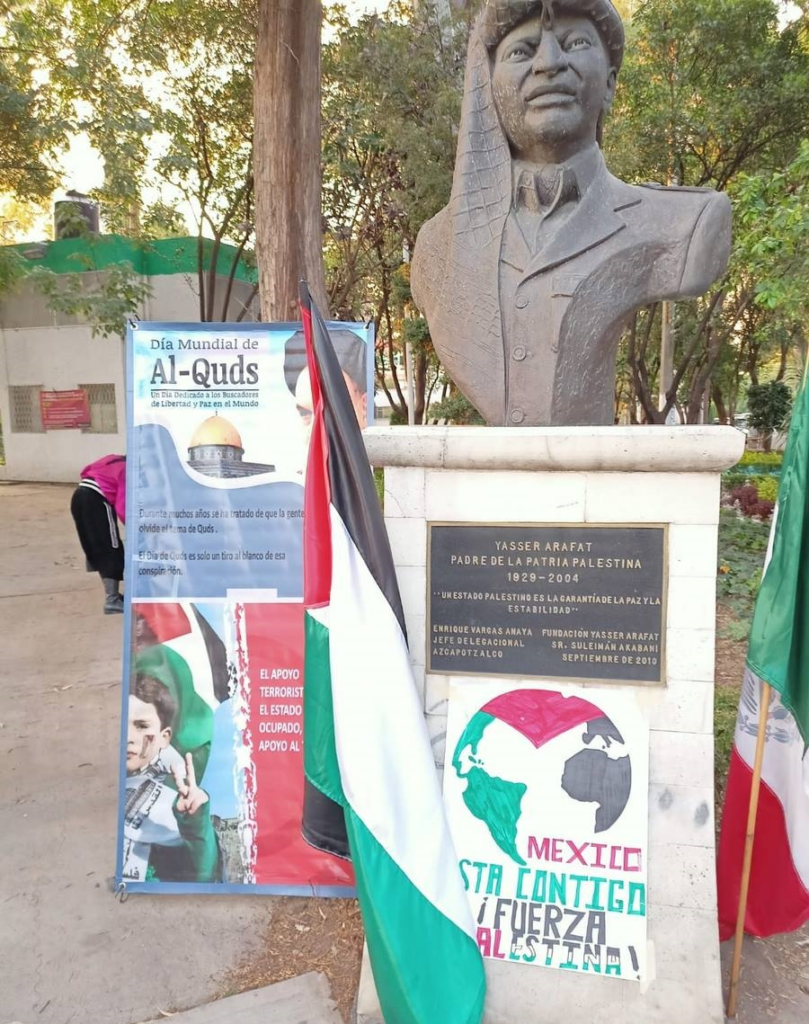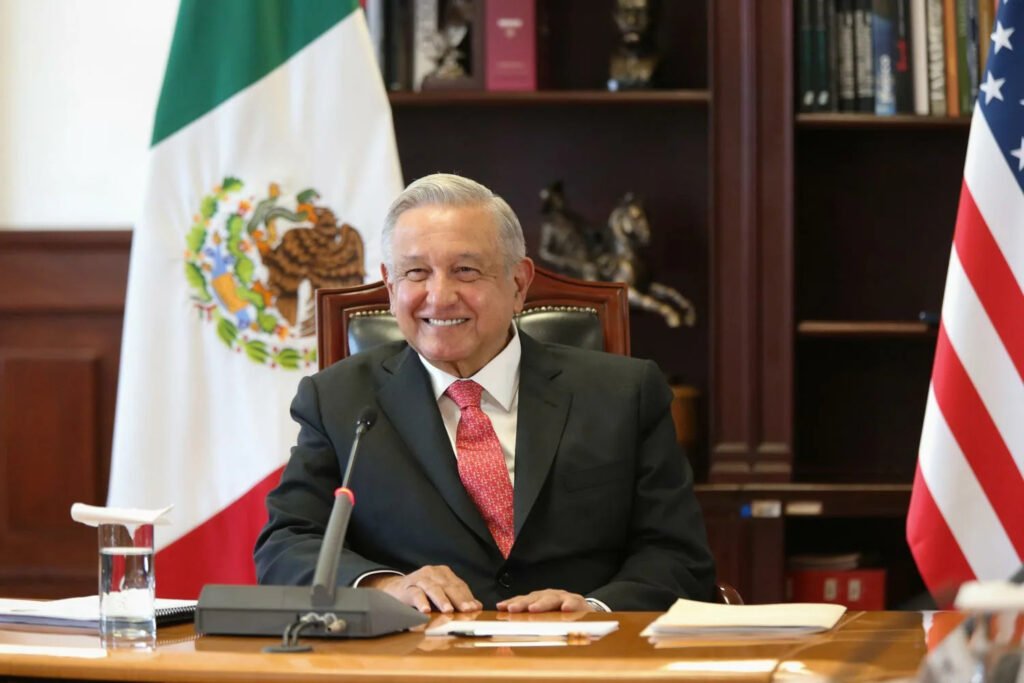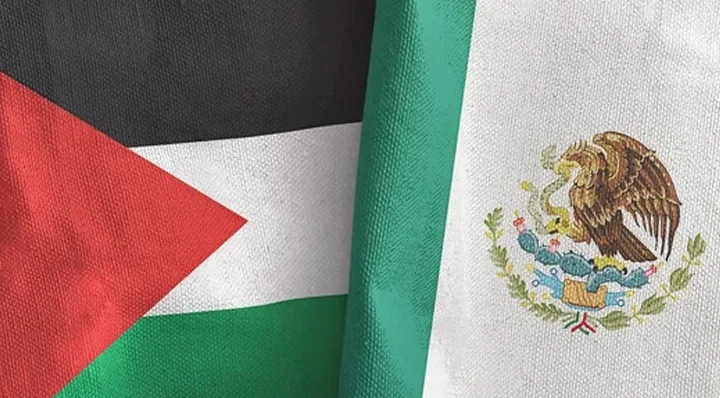Mexico’s diplomatic relations with Palestine reached a significant milestone, yet the media largely overlooked it. The reclassification of Palestine’s diplomatic mission in Mexico from a special delegation to an embassy, announced on June 1, 2023, marked an important step in the bilateral relationship between the two nations. The Palestinian Ministry of Foreign Affairs expressed optimism that this upgrade would strengthen ties between Mexico and Palestine, laying the groundwork for enhanced cooperation and mutual recognition.
While this development was diplomatically significant, it received little attention in both Mexican and international media. The Mexican government’s confirmation of this move was notably low-key, with the update appearing discreetly on its official website, bypassing the kind of formal announcement typically associated with such substantial shifts in foreign policy.
Mexico’s Evolving Stance on Palestine: A Historical Context
Mexico’s relationship with Palestine has experienced shifts over the decades. In 1975, under President Luis Echeverría, Mexico established diplomatic relations with the Palestinian Liberation Organization (PLO). Echeverría’s administration even saw the president meet with PLO leader Yasser Arafat, a bold step at the time. Diplomatic exchanges continued, culminating in 2010 with the unveiling of a bust of Arafat in Mexico City. However, over time, Mexico’s stance on Palestine softened, aligning more closely with U.S. foreign policy, which became evident when most of Latin America, led by Brazil, recognized Palestinian statehood in 2010. Mexico remained a notable exception, aligning itself with Washington’s cautious approach on the issue. Mexico’s hesitance on Palestine contrasted sharply with the actions of its Latin American neighbors, many of which, including Argentina, Bolivia, and Uruguay, recognized Palestinian statehood by early 2011. Despite its earlier bold moves, Mexico held back, reflecting the broader geopolitical pressures and U.S. influence on its foreign policy.

Complex Relations Between Mexico and Israel
Complicating Mexico’s stance toward Palestine is its intricate relationship with Israel. In recent years, bilateral ties between Mexico and Israel have been influenced by a variety of factors, including security cooperation and contentious dealings. Israeli security firms, capitalizing on their expertise developed in the “Gaza laboratory,” have been involved in Mexico’s border security infrastructure, a move that drew criticism from segments of the Mexican public. Israel’s open support for Donald Trump’s proposal of building a wall along the U.S.-Mexico border in 2016 further strained relations. Prime Minister Benjamin Netanyahu’s endorsement of the wall—drawing parallels with Israel’s Gaza barrier—caused an uproar in Mexico, especially as Israeli firms began to seek business opportunities along the U.S.-Mexico border.
Another point of contention between the two countries arose over Israel’s provision of surveillance technology. Mexico became the first country to adopt the Israeli-developed Pegasus spyware in 2011, which was later used extensively under the Enrique Peña Nieto administration to monitor journalists, politicians, and human rights activists. The use of Pegasus, particularly its role in spying on current President Andrés Manuel López Obrador (AMLO) and his family, further tainted the relationship.
The most striking case in Mexico-Israel relations, however, centers on Tomás Zerón, the former head of Mexico’s Criminal Investigation Agency, who fled to Israel following charges related to torture, forced disappearance, and obstructing justice in connection with the investigation of the 2014 disappearance of 43 students from Ayotzinapa. Despite repeated extradition requests from Mexico, Israel has shielded Zerón, straining relations between the two countries. President AMLO has publicly condemned Israel for its protection of Zerón, stating that no country, especially one with a history of persecution, should shield someone accused of torture.

The Palestinian Diplomatic Shift and Its Broader Implications
In light of the strained relationship with Israel, Mexico’s recognition of the Palestinian embassy is a bold diplomatic maneuver. It not only aligns Mexico more closely with the growing consensus in Latin America but also signals a subtle departure from U.S.-influenced foreign policy. While it is unclear whether Mexico’s decision was directly influenced by its frustrations with Israel over the Zerón affair, the timing of the recognition suggests that it may have been a contributing factor.
The formal upgrade of Palestine’s diplomatic status also reflects Mexico’s commitment to aligning itself with broader global trends. Many countries, particularly in the Global South, have supported Palestine’s bid for statehood and international recognition. Mexico’s decision could set the stage for more active engagement with Palestinian issues in international forums such as the United Nations.
A Potential Shift in Global Dynamics
Mexico’s recognition of the Palestinian embassy comes at a time when international alliances are being reshaped, with countries reconsidering their positions on long-standing conflicts. As Mexico emerges as an influential regional player with growing clout on the international stage, its decisions on issues like Palestine are likely to resonate beyond Latin America. By upgrading its relations with Palestine, Mexico is asserting its independent voice in global diplomacy, even if the move has yet to garner significant international attention.
Furthermore, this diplomatic shift underscores a broader Latin American consensus that supports Palestinian sovereignty, a position shared by much of the Global South. Mexico’s move can be seen as part of a larger effort to forge stronger ties with the region’s progressive governments, including those led by leaders like Brazil’s Lula da Silva, who have long championed Palestinian rights on the global stage.

Mexico’s Diplomatic Calculations
In conclusion, Mexico’s decision to upgrade Palestine’s diplomatic status in July 2023 represents a meaningful step in its evolving foreign policy. While the move received limited media attention, it has significant geopolitical implications. It signals Mexico’s willingness to diverge from U.S. foreign policy priorities and align more closely with Latin American and Global South consensus on Palestine. This decision also highlights the complexities of Mexico’s relationship with Israel, particularly in light of the unresolved extradition cases involving high-profile Mexican fugitives. As Mexico continues to navigate its diplomatic path, its actions regarding Palestine could have far-reaching implications for its position on the global stage, particularly as it seeks to balance relations with both Israel and Palestine amid broader international tensions.

